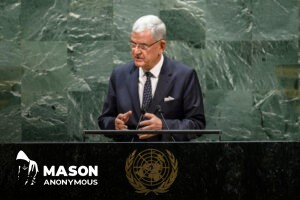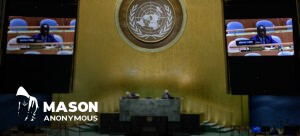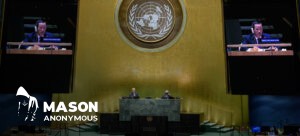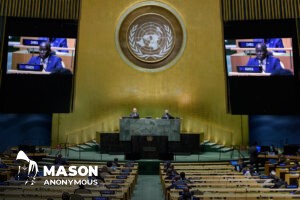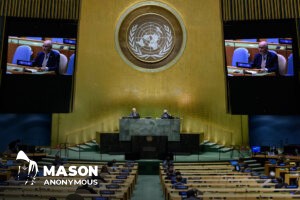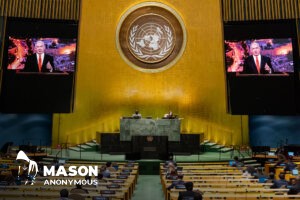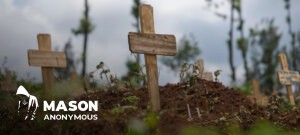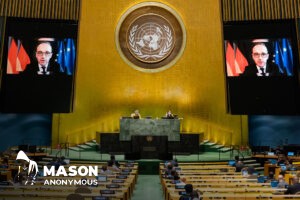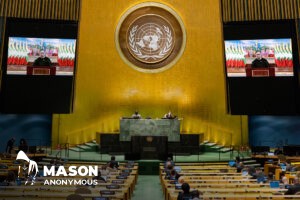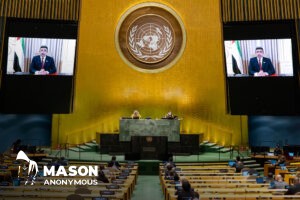“This meeting has been substantive and exceptional,” said Volkan Bozkir, wrapping up the Assembly’s 75th anniversary high-level segment, held against the backdrop of the global pandemic.
The Assembly’s historic decision in July to allow world leaders to send in pre-recorded video messages, and to ensure physical distancing protocols for in-person interventions, meant fewer delegates crowding the historic halls of the UN’s New York Headquarters building, and far less traffic on Manhattan’s bustling East Side.
But more Member States than ever took part in the annual general debate, pressing ahead with a full slate of issues, from cooperation on much-hoped for COVID-19 vaccines and reviving global multilateralism, to promoting gender equality and climate action.
The Assembly President said Heads of State and Government, as well as Ministers, had, over the past six days, laid down a complete agenda, “which not only supports the priorities I laid down, but also provided enhanced guidance, on steps needed to overcome the challenges we face.”
Power and relevance of the UN
“The fact that so many world leaders chose to address this Assembly is a testament to the power and relevance of the United Nations,” stated Mr. Bozkir, adding: “No other platform in the international calendar, has this convening power. No other Organization can bring so many global leaders together. No other body has the potential to address global challenges, like this United Nations.”
Indeed, through their virtual presence, “our political leaders have demonstrated their commitment to multilateralism, and the United Nations,” he said, adding that many had recognized that multilateralism presents the most effective system to address global challenges, such as the pandemic and climate change.
“I thank you for this full and comprehensive endorsement of the rules-based international order and principles enshrined in the United Nations Charter,” said the Assembly President, also taking note of the participants’ strong calls for a reformed and increasingly effective UN, that is aligned to the realities of the 21st Century.
Solidarity to tackle of COVID-19 pandemic
“The call for solidarity is impossible to ignore in the context of the current pandemic,” Mr. Bozkir continued, noting that every Member State referred to the catastrophic consequences of this disease in their remarks.
“Unilateral actions have failed to halt its spread. Significant efforts are needed to combat the current pandemic and prepare for future health shocks,” he said.
Member States had asked him to focus on three relevant issues during his presidency: early warning systems: creating conditions to prevent emergence of another disease; inclusivity in approaches to dealing with the crisis; and equity in access to future vaccines.
The call for solidarity is impossible to ignore, in the context of the current pandemic
In that regard, he said that at the Assembly’s special session on the pandemic later this year, Member States are encouraged to present policy solutions on these three issues, to strengthen cooperation and put the world back on track towards achieving the Sustainable Development Goals (SDGs).
“COVID-19 is a practice test that has revealed our weaknesses and the areas that we must strengthen together,” said the Assembly President, noting that he was pleased so many speakers had recognized the opportunity ‘to build back better’ so the world would be better prepared for future crises.
“We all know that we must build resilience now to prepare for whatever comes tomorrow. And we know that we have a road map to achieve this: the 2030 Agenda,” he declared.
Long-term threat of climate change
“The pandemic has diverted resources and attention. But climate change, is still the greatest long-term threat to humanity,” he said, noting that as fires rage, sea-levels rise, and biodiversity is lost, there is even greater urgency in pursuing our climate goals and integrating them in our plans “to build back better from the pandemic”.
As such, he pledged to work closely with Member States to make COP26, the UN climate conference set to be held next year in Glasgow, a landmark in the mutual quest to combat the climate challenge.
Mr. Bozkir also looked forward to discussing the importance of biodiversity, particularly with respect to disease, at the first ever UN Biodiversity Summit, set for Wednesday, 30 September, in New York.
“We can find practical solutions, if we work together to prevent instability and achieve lasting peace,” Assembly President Bozkir said. “Everyone agrees on the need for a call for a global ceasefire. The time has come to implement it.”
Sharing the speakers’ concerns about threats to international peace and security and deeming them to be well founded, he lamented that this situation had been made worse by the pandemic.
Seventy-five years after the creation of the Organization, conflicts still rage in the world and many protracted crises remain unresolved, he explained and stressed the devastating consequences of conflicts on the most vulnerable groups.
He also endorsed the concern of States regarding nuclear proliferation, saying: “Peace is more than the absence of war, but I was encouraged to hear, a firm commitment to disarmament, a crucial tool in conflict prevention, alongside preventive diplomacy.”
“While sovereign countries can take whatever actions they see fit, leaders have made it clear that in an interdependent and interconnected world, solutions can only come from multilateral actions, with the UN at its center,” he stated.
“One thing is clear: ‘We are stronger together,” he recalled. “Our global consultation around UN 75 revealed that this is precisely what people around the world want.”
